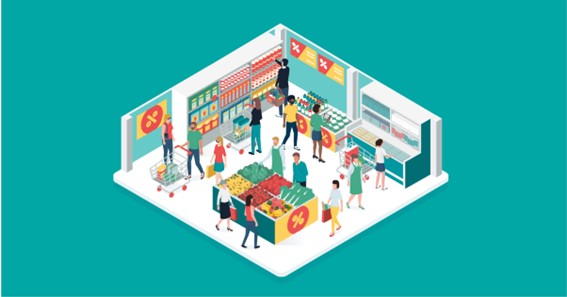Role of Availability Heuristics on Consumer Choices
Availability heuristics refer to the propensity to place more weight in a readily available example, piece of knowledge, or experience. Due to this cognitive bias, we tend to make decisions based on memories that are easier to recall rather than the most relevant facts. There is a presumption that instances and experiences that are harder for us to access are also less probable.
Availability heuristics: What is its origin and why do we need it?
We employ this heuristic because we occasionally use our memories to accelerate the decision-making process. The memories that leave the strongest effect on you are the ones that are easier to recall, and the more times you recollect a memory, the more probable it is that you will remember it again. We are more prone to base decisions on those occurrences, even if they definitely shouldn’t, when those memories are the most vivid in our brains.
Click here – 6 Tips For Growing Your Business Through Public Relations Strategies
What impact does the availability heuristics have on choice-making?
Some scenarios or occurrences may come to mind first while a decision is being made, and as a result, such situations or events seem to occur more frequently than others. Depending on how frequently an event is remembered, it may be given more importance in a decision than any other piece of information. For instance, people are more likely to recall airline crashes than vehicle crashes because people hear about aviation crashes on the news more frequently. This may give people the mistaken impression that plane crashes occur frequently, which may cause them to steer clear of flying. However, statistically speaking, car accidents occur more frequently than airplane accidents.
How has academic research been conducted?
Two concepts—outcome availability and risk availability were used to gauge the effectiveness of availability heuristics. Risk availability refers to the likelihood of financial risks, whereas outcome availability measures the likelihood of both favorable and unfavorable investment outcomes. They discovered a negative correlation between the market capitalization of investment firms and the level of outcome availability. Additionally, there was a strong correlation between outcome availability and both historical return volatility and stock beta. According to data related to risk availability, abnormal stock price reactions to upgrades are lesser and abnormal stock price reactions to downgrades are larger during significant stock market movements.
Heuristics affect people’s capacity to assess risk as indicated by death modes. The frequency of fatalities, the worth of a statistical life, and the perceived risk of that death were used to quantify risks. It is a specific type of risk from your social network and inferring the prevalence of that risk to be higher in the public was found to be associated with relative and absolute mortality rates when the risk was classified as some form of cancer.
Again, there was a high correlation between availability heuristics and frequencies for cases of risk or mortality that were more widespread. Both heuristics were determined to be ecologically valid when the researchers assessed how ecologically valid availability and effect are for assessing hazards. This time, risk was evaluated in terms of items and customer use rather than the impact of heuristics on perceptions of risk. It works best for distinct events as they are more likely to be easily remembered. It should come as no surprise that recalling failures was strongly connected with one’s assessments of the chance of failure, whereas recalling product triumphs was positively correlated with assessments of the likelihood of success.
Click here – What to Look for When Choosing an Online R.N. to BSN Program
How does availability heuristics account for consumer choices?
We encounter instances of the availability heuristics in operation every day. Even though the odds of winning the lottery are slim, one might still purchase a ticket since lottery winners and their lavish lifestyles are easier to recall in the mind than lottery losers. The media’s coverage of medications demonstrates this influence. We tend to overestimate the use of a drug if it is frequently mentioned in the news. Similar to how you might believe a drug is more frequent than it actually is after seeing it taken by a few people in your own circle.
Behavioral science and artificial intelligence are combined by Newristics to optimize messaging. The hot hand fallacy, availability, anchoring, confirmation bias, and anchoring are all common marketing ways that have been built, based on people’s psychology. Heuristics can lead to poor judgment based on sparse evidence, although sometimes the benefits of speed outweigh the negatives. In behavioral economics, heuristics have drawn a lot of attention as a roadblock to rational conduct.

